Kem Sokha’s high-stakes chess game with the Cambodian PM
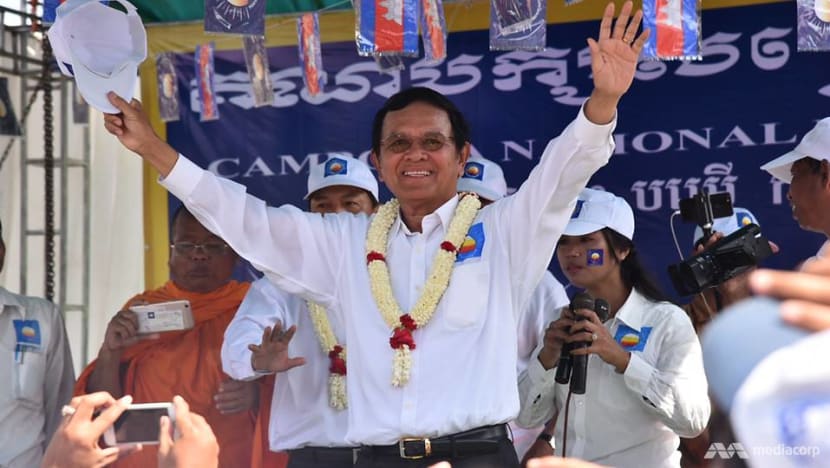
Kem Sokha has been the main man in CNRP's election campaign. (Photo: Jack Board)
PHNOM PENH: Kem Sokha has been placing his pawns on Cambodia's political chessboard. And he thinks he has the king in check.
After a dynamic fortnight of campaigning through every province in Cambodia, the opposition leader has taken delight at the sight of Hun Sen taking his own turn at electioneering.
The prime minister of more than three decades had not been seen on a campaign trail for nearly 20 years. Two days out from the country’s commune elections, once seen as largely unimportant on a national level, that changed.
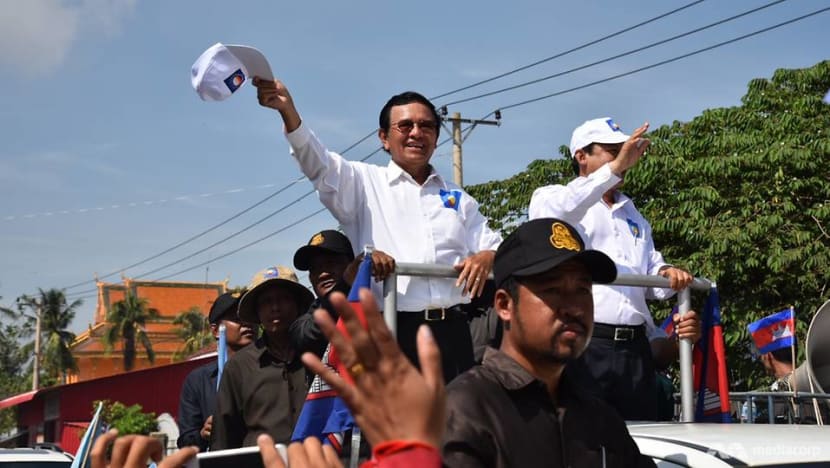
When Hun Sen stood upon a stage in Phnom Penh on Friday (Jun 2) to make a sweeping call for support to the nation, it was proof for Sokha that his party’s campaign has hit the mark.
“When one side has all the pawns in hand they normally just use them, they don’t use the king. They don’t use the important piece,” he told Channel NewsAsia.
“However, when the pawns run out, reach a dead end … the main actor must come out. Hun Sen knows himself that he must come out.”
The Cambodian National Rescue Party (CNRP) is hoping to win 60 per cent of the communes up for grab in Sunday’s elections. The vote will decide which party will have greater influence over the grassroots of the country.
It would be a sharp upturn from the 2012 edition, when the ruling party ended up with control of about 97 per cent of the communes, entrenching its firm grip over decisions about what roads get built where, or what medical clinics get funding, for example.
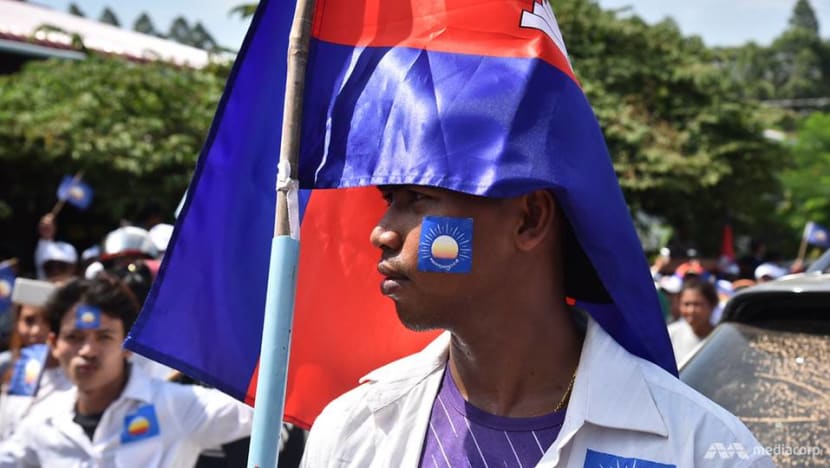
Back then, the CNRP did not even exist and votes were split between Sam Rainsy’s self-titled party and the Human Rights Party, headed by Sokha. The coalition that formed between the two soon after almost won the national election the next year.
Since then, Rainsy the seemingly perennial opposition figure in Cambodian affairs has faced more legal scrutiny, forcing him this year to abandon his post and accept expulsion from his homeland.
In his place, the simply spoken former scientist and former party deputy has moved into the spotlight. Where Rainsy spoke with the sophistication and nuance of a career politician, Sokha talks directly to farmers and fisher folk.
And while posters around the country show the two arm-in-arm, this campaign has been an undeniable one-man show, even if Sokha does show some longing for his old running mate.
“I have revisited some places where I was usually standing together with him and we were raising our hands with each other. I don’t have him with me now,” he said.
“It made me think of him. I thought if I had him, people would be happier.”
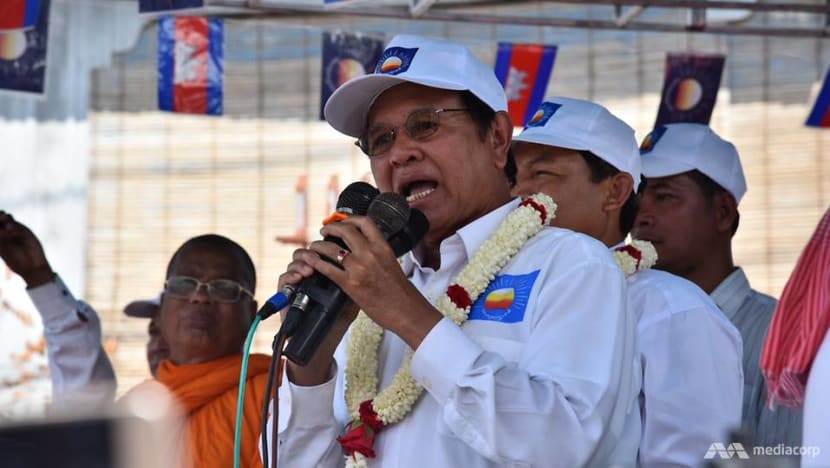
Sokha has pledged to bring Rainsy back out of exile should the CNRP succeed in the national election, a move for “justice” he says, despite their somewhat chequered cooperation in the past year.
It is nothing compared to the constant jousting with the government of recent times though. The semblance of a proper two-party system, for various reasons, has degraded since 2013 with the CNRP mostly absent from parliament and with several of its members charged with crimes and imprisoned.
Just this week, the Interior Ministry announced a probe into alleged collusion between the CNRP and several NGOs including human rights-focused ADHOC and LICADHO, both organisations long in the government’s crosshairs. They are accused of attempting to influence the election result in the opposition’s favour, a claim Sokha strongly denies.
“It is not true. They are doing a very good job, working independently and operating without taking any order from CNRP,” he said.
“They don’t serve the interests of any party. They serve the interests of Cambodian citizens and for democracy.”
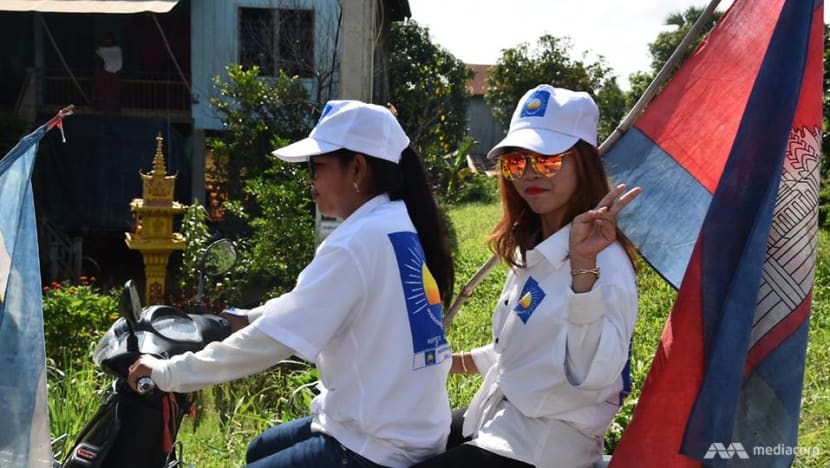
The level of tension-building rhetoric in the country has been discernible in the lead up to the vote; notably with thinly veiled threats of war from the prime minister himself, should the CPP lose power.
The ruling party enjoys control of the country’s military and police forces; however, the CPP claims it would not be the one starting any kind of conflict, despite the leader’s comments.
Kem Sokha believes it is simply scaremongering to dissuade voters from choosing change, a word that reverberates enthusiastically around his rallies, widely attended by young Cambodians.
“This threat has been targeted at the voters, the people who are going to cast their vote. I think the ruling party has no other message, and so they think that threatening the people will frighten them. It is their only instrument,” he said.
“To Cambodian citizens, keep believing that we are not alone. Please don’t be worried about the war. There will be no war.”
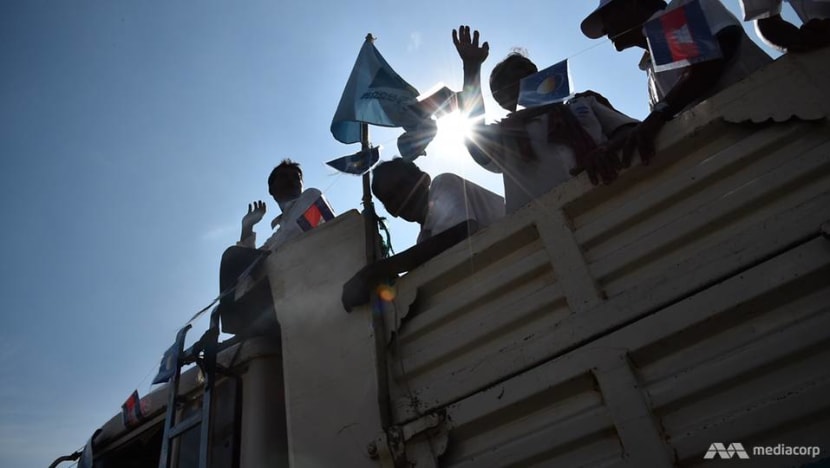
Sokha likens the commune vote to putting down a deposit for something one wants later on. By voting for the CNRP this year, he reasons, the momentum will carry them into power next.
“It is so obvious that if we win the majority vote for this commune election, we would win another majority vote in 2018.”
It is at that point the party says it would implement a US$500,000 budget payment to each and every one of the 1,646 communes around the country. It is a populist measure with an intention of decentralising political control and encouraging local development.
Critics question where the money would come from, and cite the CNRP’s lack of governing experience or budget control when casting doubt on such promises.
For Sokha, it is a carrot approach where a stick has been wielded often.
There is no track record to judge whether any of the pledges to improve infrastructure, create jobs or improve education or medical care will eventuate. Nor, whether Sokha’s intention to build bi-party cooperation and avoid reprisal in the case of victory will actually happen.
“Please don’t be worried,” he said, in a message to his political rivals. “At CNRP, we don’t have any revenge in us. Winning or losing is a very normal thing. We will work together.”
It is his word. His chance to keep it will only come when Cambodians decide their future at the ballot box.














